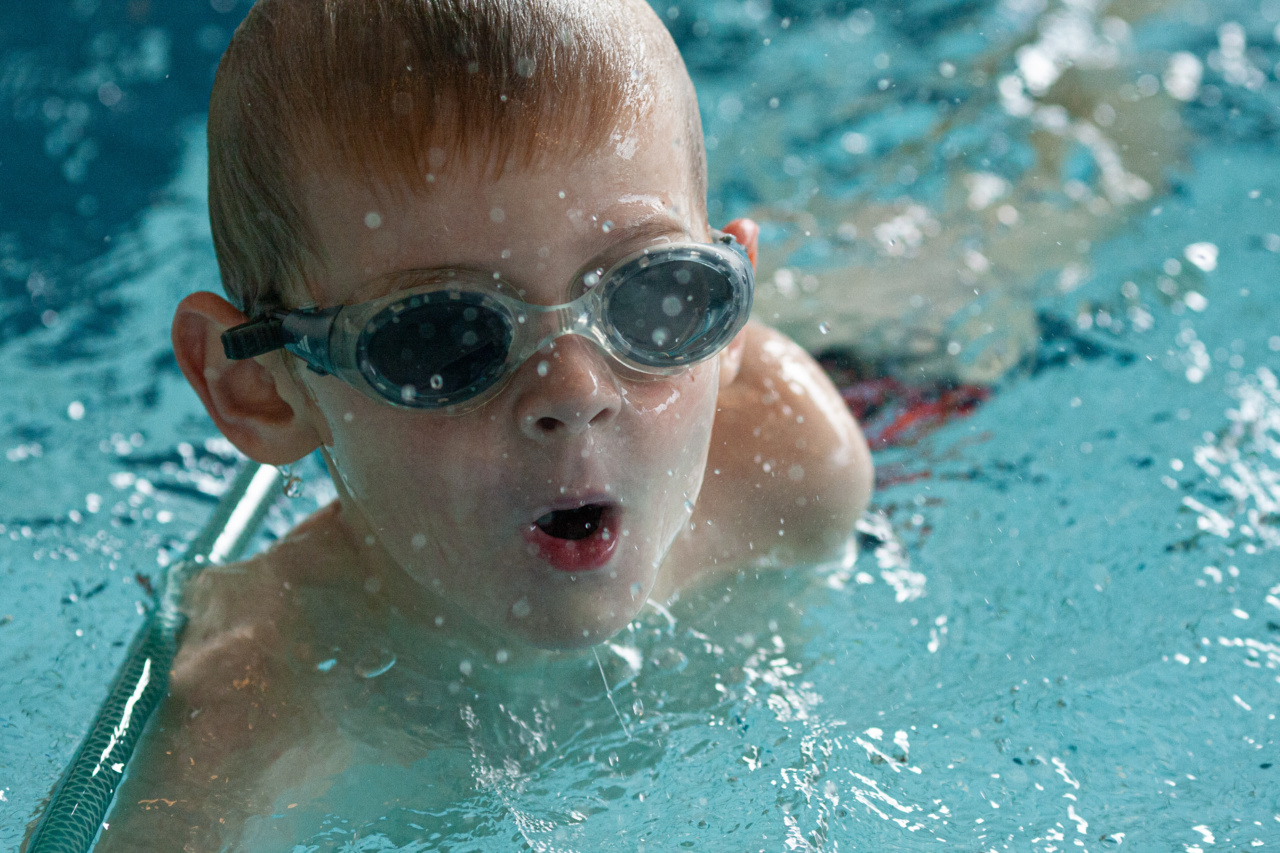Swimming is a popular activity for both children and adults. It is a fun and refreshing way to cool off during hot summer days and also offers numerous health benefits.
However, there is a growing concern about letting children swim every night as it may have some harmful effects on their physical health, mental wellbeing, and overall development. In this article, we will explore why letting your child swim every night could be potentially detrimental and discuss alternative ways to engage them in healthy activities.
1. Risk of Chlorine Exposure
Most swimming pools are treated with chlorine to keep the water clean and free from bacteria. While chlorine is effective in maintaining water hygiene, excessive and prolonged exposure to chlorine can lead to various health issues.
Continuous swimming in chlorinated pools every night may increase your child’s risk of developing respiratory problems, such as asthma and bronchitis. Chlorine can also cause skin and eye irritation, especially in children with sensitive skin or preexisting allergies.
2. Impact on Sleep Schedule
Children, especially younger ones, require a proper sleep schedule to ensure healthy growth and development. Engaging in vigorous activities such as swimming every night can interfere with a child’s sleep routine.
Swimming at night may increase their energy levels and make it challenging for them to fall asleep or achieve a restful sleep. Lack of adequate sleep can lead to irritability, difficulty concentrating, and poor academic performance.
3. Increased Risk of Injuries
While swimming is generally considered a low-impact activity, repetitive and excessive swimming can put strain on a child’s muscles and joints, increasing the risk of injuries.
Overuse injuries, such as swimmer’s shoulder or knee pain, can occur when a child engages in repetitive movements without allowing enough time for recovery. These injuries can hinder their overall physical activity and participation in other sports.
4. Limited Exposure to Other Activities
Swimming every night can limit a child’s exposure to a variety of other activities and hobbies. While swimming offers cardiovascular and muscle-building benefits, it may not provide a well-rounded approach to overall physical fitness.
Engaging in different sports and activities helps children develop diverse motor skills, coordination, and social interaction. By solely focusing on nightly swimming, children might miss out on the opportunity to explore other interests and develop new talents.
5. Potential Negative Impact on School Performance
Swimming every night may require a significant time commitment, leaving little room for academic studies, completing homework, or engaging in extracurricular activities related to school.
Balancing academics and extracurriculars is crucial for a child’s overall development. Overwhelming them with swimming every night might lead to increased stress levels, poor time management, and consequently, a negative impact on their school performance.
6. Disruption of Family Time
Swimming every night can also disrupt valuable family time. Family dinners, game nights, and other bonding activities may take a backseat if one child’s swimming routine becomes the main focus.
Spending quality time with family plays an essential role in a child’s emotional well-being and overall family dynamics. It is important to strike a balance between individual activities and shared family time to promote a harmonious household environment.
7. Psychological Pressure and Burnout
Overscheduling a child’s daily routine with swimming every night can put excessive pressure on their psychological well-being.
While swimming is enjoyable for many children, it may become a source of stress and burnout if it becomes too demanding or competitive. Pressuring a child to swim every night may lead to a loss of interest, decreased motivation, and ultimately affect their overall passion for the activity.
8. Limited Time for Relaxation and Unstructured Play
Children also require unstructured playtime and relaxation to develop creativity, imagination, and problem-solving skills.
If swimming becomes a daily priority, children may miss out on the opportunity to engage in imaginative play, explore hobbies, or simply have time to relax and unwind. Allowing children to have downtime is essential for their mental health and cognitive development.
9. Dependency on Swimming as a Primary Source of Fitness
While swimming is an excellent form of exercise, relying solely on swimming for physical fitness can limit a child’s understanding and experience of other types of activities.
It is important for children to be exposed to various forms of exercise, such as running, biking, dancing, or team sports. Encouraging diverse physical activities allows children to discover their own preferences and develop well-rounded fitness habits that they can carry into adulthood.
10. Potential Social Isolation
If a child’s nightly routine involves swimming, it may limit their opportunities for social interaction with peers or participation in other group activities.
Developing social skills, teamwork, and building friendships through shared hobbies or interests are crucial for a child’s social development. By swimming every night, children may miss out on the chance to engage in various social settings and hinder the development of important social skills.
Conclusion
While swimming is a beneficial activity for children, allowing them to swim every night may have potential harmful effects on their physical health, mental wellbeing, and overall development.
The risk of chlorine exposure, disruption of sleep schedule, increased risk of injuries, limited exposure to other activities, negative impact on school performance, disruption of family time, and potential psychological pressure are some of the concerns associated with daily swimming routines. It is important to strike a balance between swimming and other activities to ensure a well-rounded approach to a child’s growth and development.
Maintaining a flexible and diverse routine that includes various physical activities, unstructured playtime, and ample family time can provide children with a holistic and enriching experience, promoting their overall health and wellbeing.































